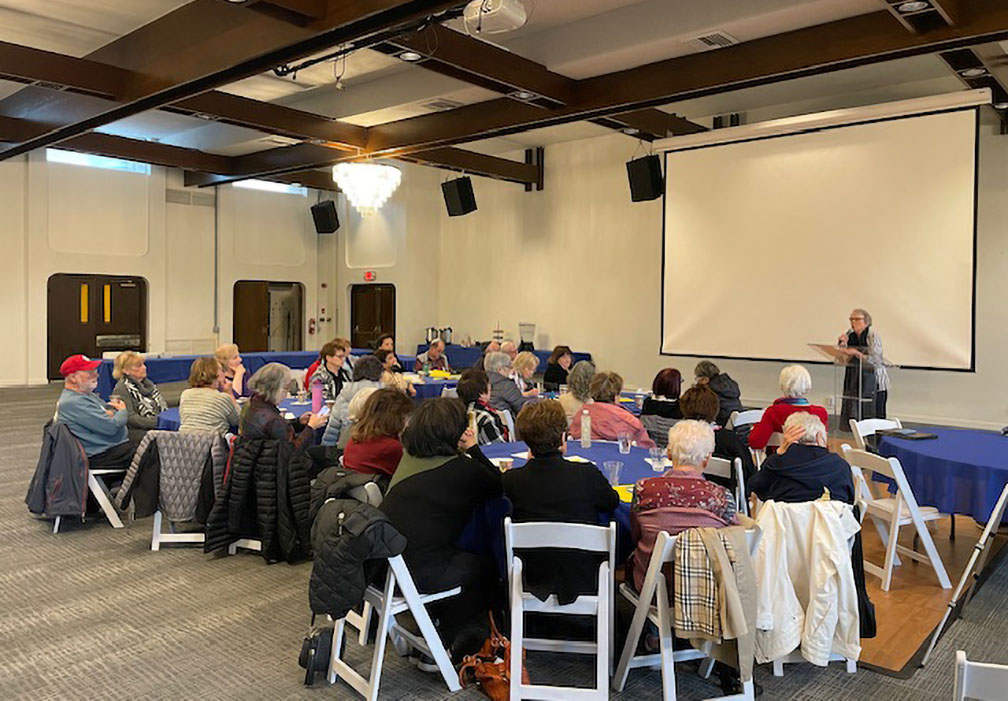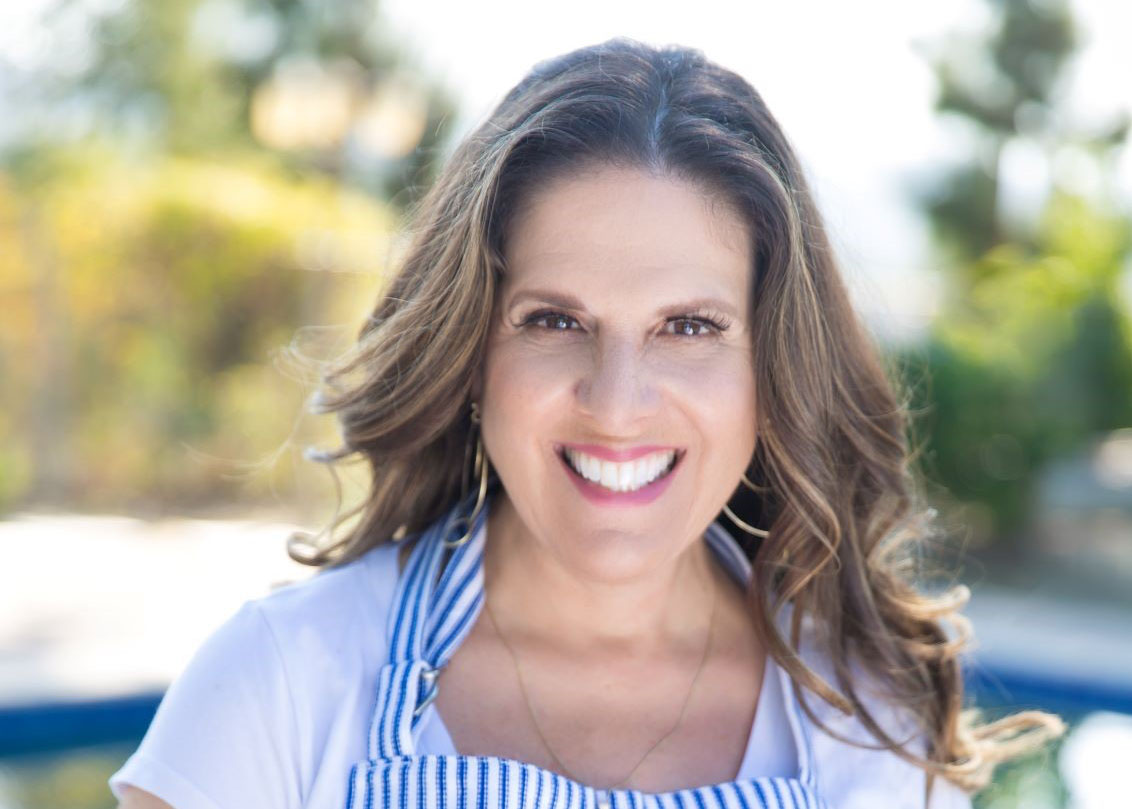
Debra L. Eckerling, the Journal’s food writer, just published her fourth book, and there’s something for everyone in it. In “52 Secrets for Goal-Setting and Goal-Getting: How to Stay Focused, Grow Your Network and Get More Done in Less Time” (Mango Publishing), Eckerling speaks with professionals across a multitude of industries, including chefs, business leaders, authors and creatives.
Instead of prescribing a rigid system for goal-setting, Eckerling lets the contributors do the talking, providing a range of perspectives on productivity, leadership and career sustainability.
“The secret to success is there is no one secret,” Eckerling told The Journal. “Trying what works for other people and seeing what speaks to you — what you believe is going to solve your problems and/or make your life better — and taking it for a test drive.”
Since “52 Secrets” is structured in a way that allows readers to pick and choose what resonates, some may want to read it straight through, while others may jump around to sections with aphorisms that speak to them.
“If there’s one particular area that needs a little bit of a lift, go to that one,” Eckerling said. “If you want to read the book straight through, which people do, go right ahead, and if there’s something specific you need, focus there.”
If there’s one particular area that needs a little bit of a lift, go to that one … If you want to read the book straight through, which people do, go right ahead, and if there’s something specific you need, focus there.”
The book’s core message is putting a premium on breaking down your work ethic processes and becoming hyper-aware of your habits — and how you can start doing that right now.
“I think it goes back to the running theme of the book, which is humanity,” Eckerling said. “If you look at Susan Feniger’s tip, she talks about communicating with all of her people, uplifting her team. What’s more human than that? Chef Rossi’s was, ‘Be able to look at yourself in the mirror,’ and Katie Chin’s was, ‘Always work harder than you dream.’ So it’s work ethic and the love of what they do, which is not just for the food people.”
After reading “52 Secrets,” I’m picking out four chapters and treating it like a four-week training program. Pick three or four chapters at a time, let them be your spirit animals for the month, and see which principles stick. The people whose advice lingers the most — the lessons you keep thinking about — you should lean into. Follow those contributors on social media, dig into their work and see how they apply their own lessons in the real world.
It’s no surprise that Eckerling, who writes the happiest section of the Journal week after week, wrote a cheerful, encouraging book. As the host of the award-winning “Taste Buds with Deb” podcast, Eckerling sourced advice from some incredible chefs and restaurateurs.
I picked out three chapters from people in the food business. For the fourth, I picked a professional who had a terrifying brush with death.
In Chapter 22 of “52 Secrets,” Chef Katie Chin’s advice is to “never dream harder than you work.” The restaurant industry is brutal — if you’re not working, everyone around you knows it immediately. There’s no way to fake it. After working in film and TV marketing, Chin rediscovered her passion for cooking and eventually left her corporate job to build a culinary career. Her book, her TV appearances, her one-woman show — they’re all extensions of the work she put in.
In Chapter 20, Chef Rossi, the owner and executive chef of The Raging Skillet, says “be able to look at yourself in the mirror.” The chapter isn’t just about work ethic — it’s about being able to stand behind your actions, your reputation, and how you treat people.
“I’ve been doing this for 36 years, catered more than 2,000 weddings, and won all sorts of awards,” Rossi says in the book. “[Former clients] are always so happy to see me. They’re like, ‘Chef Rossi, you catered our wedding 18 years ago, 20 years ago.’ People are still raving about the food, and that really makes my heart smile.”
That’s what accountability looks like: not just delivering a product or service in the moment, but knowing that years down the line, people still associate you with quality.
In Chapter 46, Chef Susan Feniger’s message is to “let your team know they matter.”
“As a leader and an owner, it’s essential to have communication and respect for the people who work for us, whether it’s the dishwasher or the CEO,” Feniger says in the book. “Having the people in your orbit feel respected, listened to, and seen is really important.”
Feniger’s chapter tells a story about an entry-level dishwasher who barely spoke English but, through small moments of recognition and encouragement, grew into a lead pastry chef. Feniger herself led by example, spending long hours in the kitchen, peeling ginger, washing dishes — showing that leadership isn’t all about delegation; it’s about participation.
Since nobody succeeds alone, recognizing ability and contribution in those around you makes the whole operation better.
Chapter 27 features a man who survived the “Miracle on the Hudson” — the 2009 U.S. Airways flight that made an emergency landing on the river shortly after takeoff. Everyone survived, but came within mere moments from death. Dave Sanderson was the last passenger off the plane and has since built a career sharing his story. His advice is to “find the whos for your hows.”
It was great to see that Sanderson doesn’t just look to his friends and networks for support. He reads history for inspiration. He says, ”if you want to lead in a crisis, study Lincoln. If you want to master communication, study Reagan. If you need legal insight, keep a judge on speed dial.”
There’s much to gain in studying how leaders in watershed moments in history broke down their thought processes at critical moments. Of course, some stakes are higher than others, but the principles can apply anywhere.
What works about “52 Secrets” is that it doesn’t demand that you overhaul your entire life.
“I believe every day, every week, every month is an opportunity to just rethink your life and make new plans,” Eckerling said.
This past fall, Eckerling experienced the sudden passing of her mother. This was just over a month after she turned in her manuscript.
“My mother passed away in September, and although she never got to see the physical copy of the book, she was an instrumental part of it. Mom was so excited about the project. We would brainstorm together, she would offer feedback and recommendations — ‘Did you interview this person yet? Did you reach out?’ Everything that I learned about community and kindness and uplifting others came from her. I miss her every day, but I feel really blessed that there’s so much of her in this book.”
Debra Eckerling will be doing a book discussion and signing at Barnes and Noble at The Grove on Feb. 19, 2025. You can purchase your copy “52 Secrets for Goal-Setting and Goal Getting” from Barnes and Noble, Amazon and anywhere books are sold.























 More news and opinions than at a Shabbat dinner, right in your inbox.
More news and opinions than at a Shabbat dinner, right in your inbox.